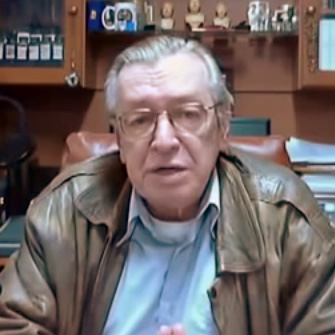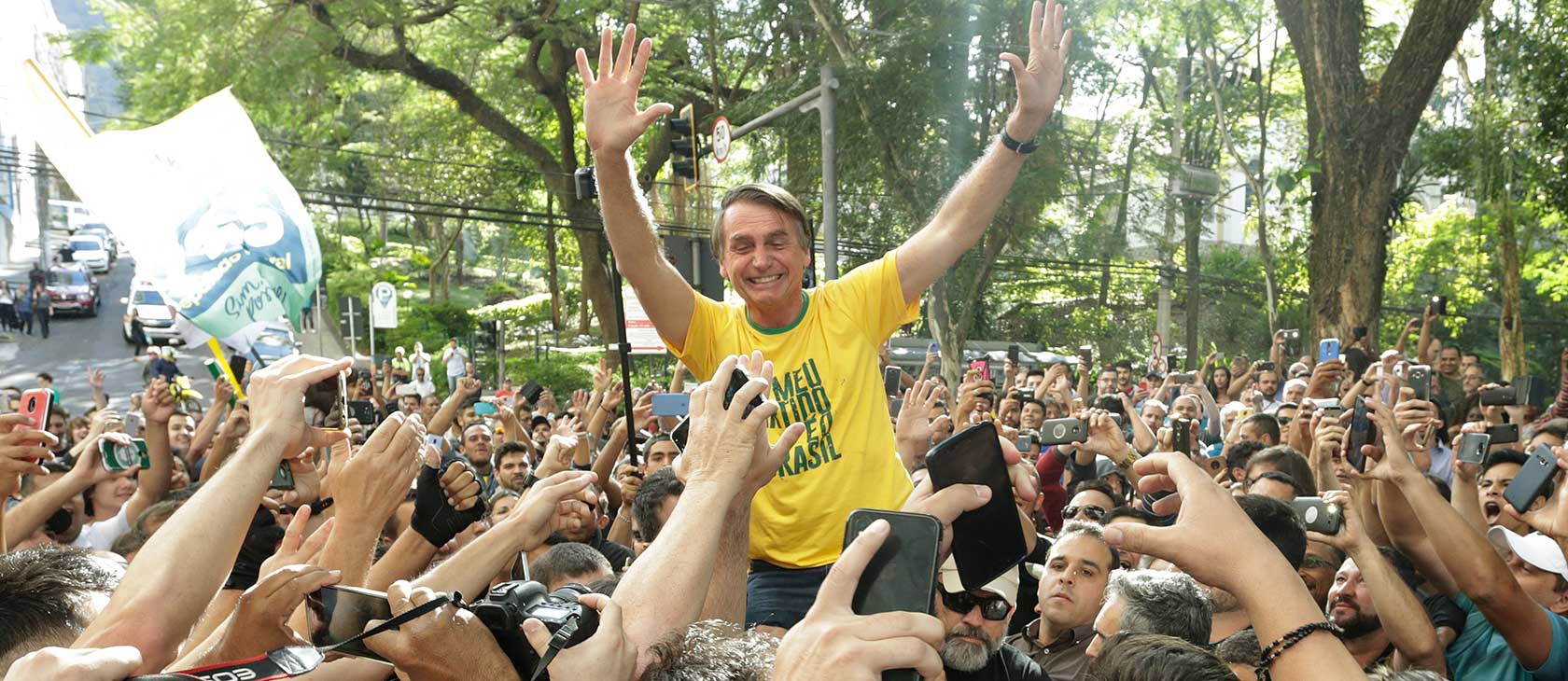The recent victory of the conservative populist Jair Bolsonaro in the Brazilian presidential elections brought the name of the philosopher Olavo de Carvalho to the center of Brazilian political debate. Many have since stated that Carvalho is an intellectual precursor to the populist candidate – as someone who was able to reshape the Brazilian political discussion in ways that cleared an intellectual path for Bolsonaro’s electoral victory. It is not a coincidence that when Bolsonaro gave his victory speech, Carvalho’s best-selling book The Minimum You Need to Know not to be an Idiot (2013), was in plain sight.
Carvalho’s influence over the Brazilian new right is indubitable. Many of his disciples supported Bolsonaro since the beginning. Some of them were elected to the Congress in the conservative wave that shifted Brazilian politics. So how was Carvalho able to provide public debate in ways that helped bring Bolsonaro to power?
First and foremost, Carvalho provided a political philosophy capable of structuring conservative ideas in ways that undermined the intellectual hegemony of the left.
Even his opponents concede that he has an attractive personality and formidable speaking skills
Secondly, Carvalho was able to cultivate the image of an outsider: as an intellectual maverick who refused to follow the social norms imposed by the leftist media and the neo-Marxist academy. Even his opponents concede that he has an attractive personality and formidable speaking skills, so much so that he was able to cultivate thousands of followers and talk for hours without tiring his audience. In short, Carvalho has all it takes is to become an Internet personality.
But added to that is a third factor. While Carvalho is an internet personality, he also knows what he’s talking about. He can write about classics of philosophy or conspiracy theorists with the same resourcefulness. He can explain the thought of right-leaning intellectuals Eric Voegelin and Louis Lavelle as easily as he can recite entire passages of the Portuguese epic The Lusiadas. To a large extent, Carvalho played a crucial role in introducing a handful of conservative thinkers to the broader Brazilian public and was the first to warn of the problem of globalism and the way it was negatively shaping Brazilian political culture.
Carvalho’s philosophical positions are deep and have been developed over 30 years. Here, however, are two concepts which are critical to Carvalho’s and recent changes in Brazilian politics.

First, Carvalho believes that philosophy, since at least Rene Descartes, has broken with its Greek roots in the Socratic project. According to Carvalho, the philosophy developed initially by Socrates and his disciple Plato was based on the search for understanding the position of the individual in the universe. Therefore, individual experience is the raw material of philosophical reflection. By contrast, modern philosophy in the form in which it started to develop under Descartes abandoned this understanding of the importance of personal experience as a compass of philosophical construction in favor of an extreme introspection. Carvalho calls this displacement cognitive parallax.
Karl Marx is an excellent example of this phenomenon. Marx argues in his Critique of Hegel’s Philosophy of Right that the social reality of men conditions his consciousness; later, in his Theses on Feuerbach, he goes a little further and says that social reality determines our consciousness. In short, our position in society is defined by our role in the system of production and our ideas is determined by this position
The proletariat, according to Marx, is the only class capable of apprehending the reality of the historical process and contemplating reality beyond the illusion imposed by class ideology. But, we must ask ourselves, how is it that Marx, a non-proletarian, could have been the announcer of a truth that only a proletarian could contemplate? This elementary contradiction between philosophy and reality is the cognitive parallax.
From the beginning, Carvalho understood that the way to counter this revolutionary outlook ... is to reestablish the bridges that enable human understanding
Carvalho identified the most common and intense manifestation of cognitive parallax in a process he calls revolutionary mentality. This occurs when the mental framework of cognitive parallax is converted into a phenomenon of crowds. This has two characteristics. First, the revolutionary sets the hypothetical future which one he wants to realize as the parameter of the judgment of his actions. The past thus becomes irrelevant. Second, the revolutionary inverts the subject and object positions; attacking the opponents of his future society and turning them in scapegoats who prevent him from achieving his plans.
In substance, then, the revolutionary process is unleashed through the systematic rejection of reality. The higher the level of alienation of the individual concerning to the reality that surrounds him, the higher will be the power exerted by the proposal to transform the present so that it confronts to an imaginary future.
These two concepts, Carvalho says, help us to understand the modern political debate. To the extent that the left came to exercise considerable power by guiding the political discussion, the disassociation between objective reality and ideas became more severe and clear. The post-modernist philosophers can be understood as the archetype of this process because for them all relations are essentially relations of power and all processes can only be interpreted as a process of domination. The possibility of objective truth and rational debate are consequently ruled out.
All of Carvalho’s works are a reaction against the introduction of the irrationalism of this philosophy which he sees as characterizing the revolutionary movement. From the beginning, Carvalho understood that the way to counter this revolutionary outlook that dominates the Brazilian left is to reestablish the bridges that enable human understanding: in other words, to reconnect the mind to objective reality.
By understanding the chaotic situation of the modern world and contemporary political discourse, Carvalho was able to restore real language and concern for objective reality into Brazilian political debate. This made possible the transformation of the diffuse underlying conservatism of much of the Brazilian population into political action. In this way, Carvalho was skillful enough to break the cultural hegemony of the left and help create the intellectual framework that enabled the flourishing of conservatism in Brazil.
Carvalho himself once said that every political revolution begins as an intellectual revolution. In this sense, we can say that Carvalho is the John the Baptist of Brazilian conservatism.
Image of Olavo de Carvalho used under Creative Commons license (CC BY 3.0). Cropped.



